Introduction
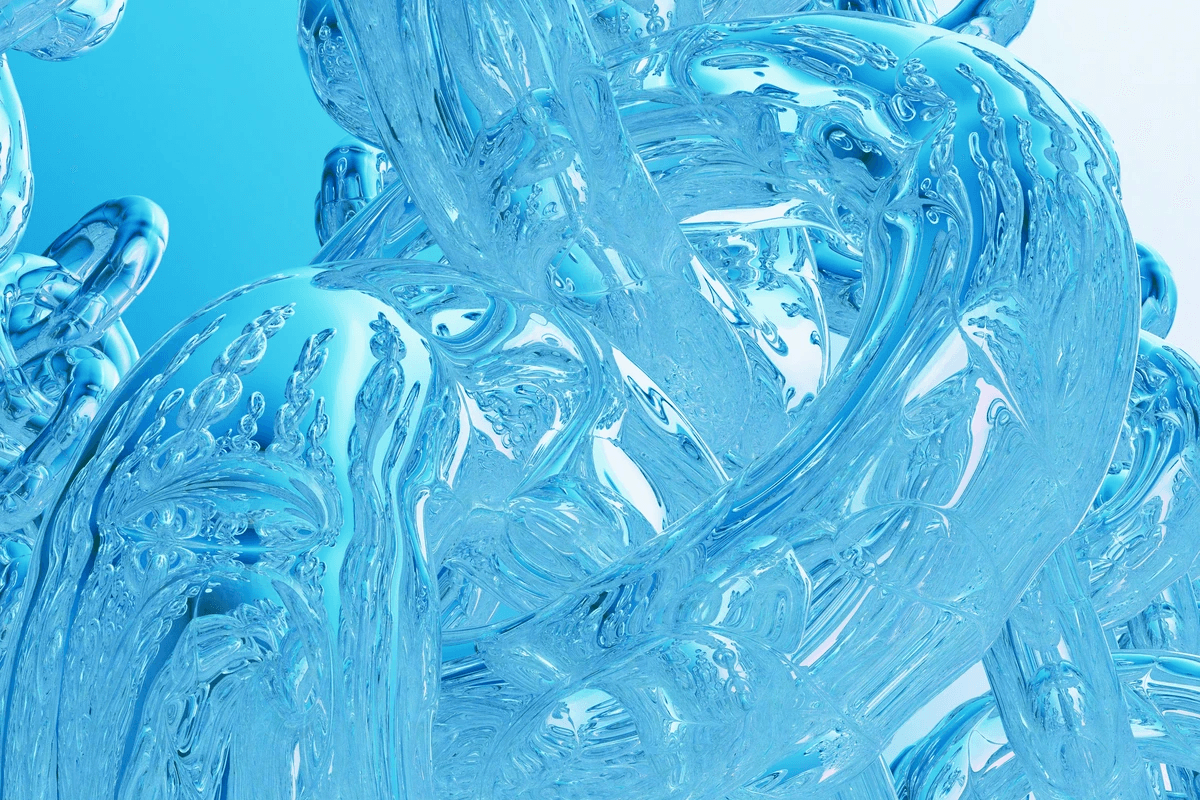
In the world of manufacturing and packaging, understanding heat seal adhesives is crucial for achieving reliable and durable bonds. These specialized adhesives are designed to withstand high temperatures, making them ideal for various applications where strong adhesive glue is essential. Whether you're sealing a package or assembling components, the right high temperature adhesive can make all the difference in performance and longevity.
Understanding Heat Seal Adhesives
Heat seal adhesives are formulated to create bonds through the application of heat and pressure, allowing materials to fuse together seamlessly. Composed of thermoplastic polymers or resins, these high temperature adhesives provide exceptional adhesion properties while maintaining flexibility under stress. By utilizing hi temp adhesive technology, manufacturers can ensure that their products remain intact even in challenging environments.
The Importance of Strong Adhesive Glue
Strong adhesive glue plays a pivotal role in ensuring product integrity during transport and use. When it comes to packaging, a robust bond prevents leaks, tears, or failures that could compromise the contents within. In industries where reliability is paramount, selecting the right high heat glue becomes not just a preference but a necessity for maintaining quality standards.
Applications in Packaging and Assembly
The applications for heat seal adhesives span across numerous industries including food packaging, electronics assembly, and automotive manufacturing. In food packaging, high temperature adhesive solutions ensure that seals remain intact during sterilization processes without compromising safety or quality. Similarly, in electronics assembly, using high temperature adhesive glue helps secure components against thermal stress during operation—proving that these adhesives are indispensable across various sectors.
What are Heat Seal Adhesives?
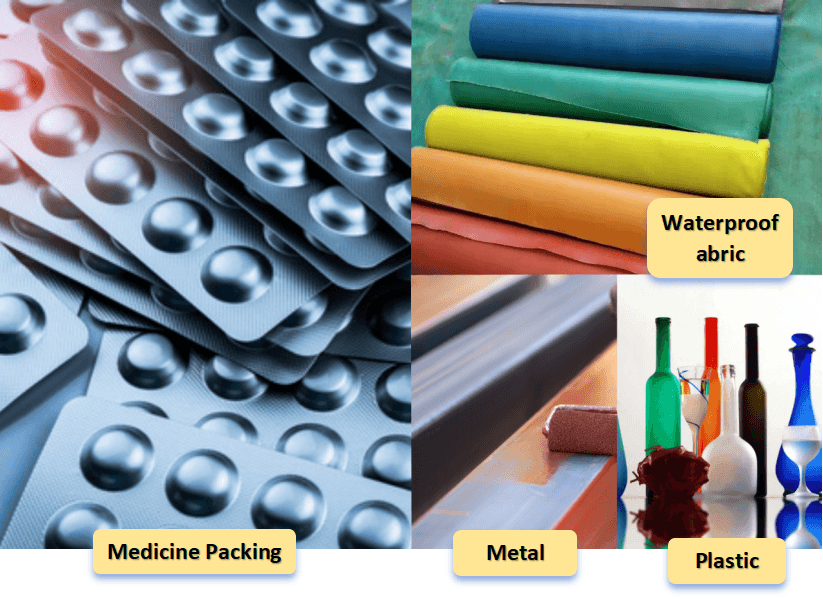
Heat seal adhesives are specialized bonding agents designed to create strong, durable seals through the application of heat and pressure. These adhesives typically consist of thermoplastic polymers that soften when heated, allowing them to bond with substrates upon cooling. The result is a reliable connection that can withstand various environmental conditions, making heat seal adhesive an essential component in many industries.
Definition and Composition
At their core, heat seal adhesives are formulated from a blend of polymers and additives that enhance their performance under high temperatures. The composition may vary depending on the intended application but generally includes resins like polyethylene or polypropylene for flexibility and durability. This unique formulation allows high temperature adhesive products to achieve effective bonding in packaging applications where traditional glues might falter.
Comparison with Other Adhesives
When we stack heat seal adhesives against other types of strong adhesive glue, the differences become clear—especially in terms of application methods and performance characteristics. While many conventional adhesives rely on chemical curing or evaporation to bond surfaces, high temperature adhesive options utilize heat activation for a faster and more efficient sealing process. Additionally, high temperature glue often provides better resistance to moisture and chemicals compared to standard adhesives, making it ideal for demanding environments.
Benefits of Using Heat Seal Adhesives
The advantages of using heat seal adhesives extend beyond mere convenience; they offer significant benefits in terms of efficiency and reliability as well. For instance, high temperature adhesive solutions can dramatically reduce production times since they require less drying time compared to traditional options like hi temp adhesive formulations. Furthermore, the resulting bonds are often stronger and more resilient under stress—ensuring your products remain intact even under challenging conditions.
Types of Heat Seal Adhesives

Overview of Various Types
Heat seal adhesives can be categorized into several types based on their composition and application methods. Common types include solvent-based, water-based, and hot melt adhesives, each with its own strengths and weaknesses. For instance, while solvent-based heat seal adhesives offer strong bonding capabilities, they may not be as eco-friendly as their water-based counterparts.
Water-based heat seal adhesives are gaining popularity due to their lower environmental impact and ease of use in various industries. Hot melt adhesives provide quick bonding solutions but may not withstand high temperatures as effectively as high temperature adhesive options. The choice between these types often depends on the specific requirements of the project at hand.
Strong Adhesive Glue vs. High Temperature Adhesive
When comparing strong adhesive glue with high temperature adhesive options, it's essential to consider the intended application environment. Strong adhesive glue excels in providing robust bonds under normal conditions but may falter when exposed to extreme heat or cold. In contrast, high temperature adhesive options are designed specifically to maintain integrity under elevated thermal conditions.
High heat glue formulations often incorporate specialized materials that enhance thermal resistance and durability compared to standard strong adhesive glue products. This makes high temperature adhesive glue ideal for applications like automotive components and industrial packaging where exposure to heat is a given. Ultimately, understanding these differences can guide you in making an informed choice.
Choosing the Right Adhesive for Your Needs
Selecting the right heat seal adhesive involves evaluating several key factors tailored to your specific application requirements. Start by assessing the temperature range your product will encounter; if it’s likely to experience extreme conditions, opting for a high temp adhesive is wise. Additionally, consider whether you need a strong bond or if temporary adhesion will suffice—this decision can significantly influence your choice between strong adhesive glue and other options.
Another critical factor is compatibility with substrates; different materials require different types of adhesion strategies for optimal performance with any high temperature glue or hi temp adhesive you select. Lastly, keep sustainability in mind; choosing eco-friendly formulations like water-based solutions can benefit both your project and the environment without sacrificing performance quality in most cases.
Advantages of Using High Heat Adhesive
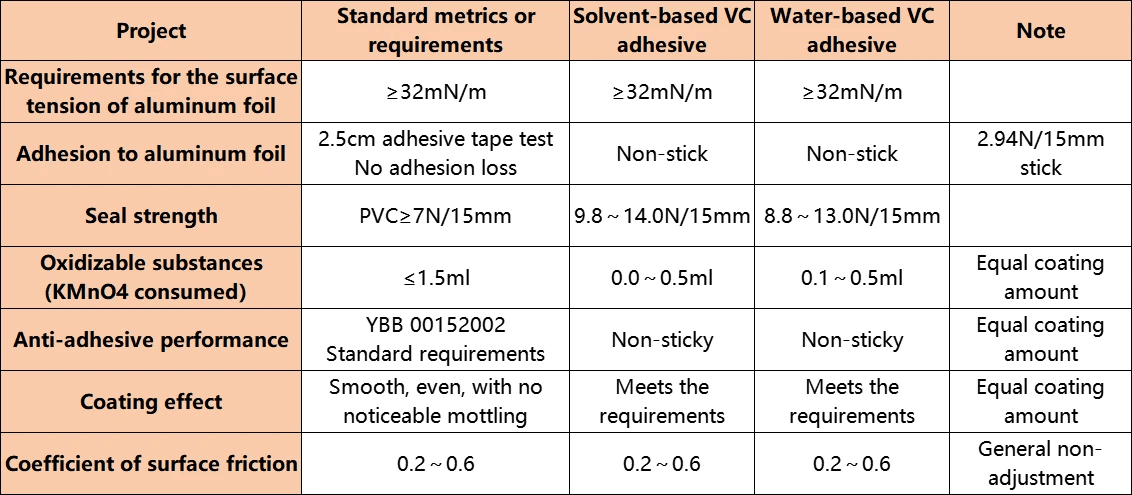
When it comes to bonding materials in challenging environments, high heat adhesive solutions shine brightly. These adhesives are specifically designed to withstand elevated temperatures without compromising their integrity. This makes them a go-to choice for industries requiring robust performance under thermal stress, ensuring that your heat seal adhesive maintains a strong bond when it matters most.
Thermal Resistance and Durability
One of the standout features of high temperature adhesive products is their exceptional thermal resistance. Unlike standard adhesives, which may fail or weaken when exposed to heat, these high temperature glue options remain stable and effective even in extreme conditions. This durability not only extends the lifespan of the bonded materials but also reduces the risk of costly production downtime due to adhesive failure.
In applications where exposure to fluctuating temperatures is common, using a hi temp adhesive ensures that your products maintain their structural integrity over time. The superior thermal resistance provided by high heat adhesives translates into fewer repairs and replacements, making them an attractive option for manufacturers seeking reliability in their processes. Ultimately, investing in a strong adhesive glue that can withstand high temperatures leads to increased confidence in product performance.
Cost-Effectiveness in Production
While some may initially shy away from using high temperature adhesive solutions due to perceived higher costs, a closer look reveals their cost-effectiveness over time. These adhesives often require less frequent replacement compared to traditional options, leading to significant savings on materials and labor costs during production runs. When you factor in reduced maintenance expenses and enhanced productivity due to fewer disruptions caused by adhesive failures, it's clear that high heat glue can be an economically sound choice.
Moreover, the efficiency gains achieved through the use of durable high temperature adhesive glue can improve overall production timelines as well. Faster assembly times combined with reliable bonding means companies can meet customer demands more effectively without sacrificing quality or incurring additional costs associated with rework or repairs. Thus, choosing a reliable hi temp adhesive not only boosts operational efficiency but also contributes positively to the bottom line.
Enhanced Performance in Harsh Environments
In industries where conditions are anything but forgiving—think extreme temperatures or exposure to chemicals—high temperature adhesives truly excel. Their formulation allows them to perform reliably when faced with harsh environmental factors that would typically compromise other types of adhesives. Whether it's automotive manufacturing or electronics assembly, utilizing a strong heat seal adhesive ensures that your products remain intact despite challenging circumstances.
Additionally, these high temperature adhesives are engineered for versatility across various applications and materials—making them an ideal solution for businesses looking for one-stop-shop adhesion solutions without sacrificing strength or reliability. With enhanced performance characteristics tailored for demanding environments, opting for a high heat adhesive is often the best decision you can make for both product quality and longevity.
Chemix's Water-Based Resin Solution
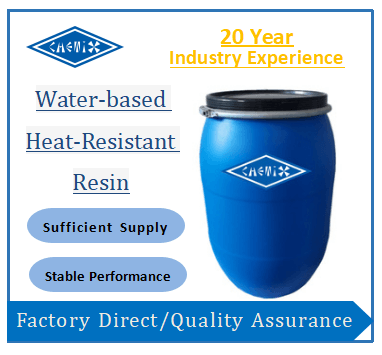
Chemix's water-based resin solution is revolutionizing the adhesive industry by offering a sustainable alternative to traditional options. This innovative high heat adhesive not only meets the demands of various applications but also aligns with eco-friendly practices. By utilizing this solution, companies can enhance their production processes while reducing their environmental footprint.
Eco-Friendly and Sustainable Benefits
One of the standout features of Chemix's water-based resin is its eco-friendly formulation, which significantly minimizes harmful emissions compared to solvent-based adhesives. This high temperature adhesive is designed to be safe for both users and the environment, making it an ideal choice for businesses looking to adopt greener practices. Additionally, using a high temperature glue reduces waste and promotes sustainability throughout the supply chain.
The shift towards these sustainable materials reflects a growing trend in industries that prioritize environmental responsibility without sacrificing performance. Companies using Chemix's hi temp adhesive can demonstrate their commitment to sustainability while benefiting from a strong adhesive glue that performs exceptionally well under pressure. As consumers increasingly favor eco-conscious brands, adopting such solutions can also enhance corporate reputation and customer loyalty.
Versatility in Different Industries
Chemix’s water-based resin solution showcases remarkable versatility across various sectors, from packaging to automotive assembly. Its ability to function effectively as a heat seal adhesive makes it suitable for diverse applications requiring reliable bonding under high temperatures. Whether it’s food packaging or industrial components, this high temperature adhesive adapts seamlessly to meet specific requirements.
Moreover, its compatibility with different substrates allows manufacturers in multiple industries to integrate this high heat glue into their existing processes without major adjustments. This versatility ensures that businesses can leverage the benefits of Chemix’s solutions regardless of their operational focus or product line. Ultimately, this adaptability not only saves time but also reduces costs associated with switching between different types of adhesives.
Performance Comparison with Traditional Adhesives
When comparing Chemix’s water-based resin solution with traditional adhesives, it becomes evident that performance is not compromised for sustainability. In fact, many users find that this high temperature adhesive outperforms standard options in terms of thermal resistance and bond strength under challenging conditions. The reliability offered by this high heat glue means fewer failures and rework opportunities during production.
Additionally, traditional adhesives often require extensive safety measures due to volatile organic compounds (VOCs), whereas Chemix's hi temp adhesive maintains low VOC levels without sacrificing effectiveness or durability. This performance edge makes it an attractive option for those seeking both quality and safety in their manufacturing processes. As industries continue evolving towards more responsible practices, the advantages offered by Chemix’s water-based resin are becoming increasingly clear.
Key Considerations for Adhesive Selection

When selecting a high temperature adhesive, several key factors must be evaluated to ensure optimal performance in your specific application. The right heat seal adhesive can make all the difference between a successful project and a sticky disaster. Understanding the nuances of strong adhesive glue, particularly in high-heat environments, is essential for achieving lasting results.
Factors to Evaluate for High Temperature Adhesive
First and foremost, consider the thermal resistance of your chosen high heat adhesive. It’s crucial that this type of glue can withstand elevated temperatures without degrading or losing adhesion strength. Additionally, assess the bonding surfaces; some high temperature adhesives perform better on specific materials than others, making it essential to match the adhesive with your substrate for maximum effectiveness.
Another factor is the curing time and method required for the high temperature glue you select. Some adhesives may need heat activation or prolonged curing times that could impact production schedules. Lastly, evaluate any environmental conditions that might affect performance; humidity, exposure to chemicals, and mechanical stress should all be taken into account when selecting a hi temp adhesive.
Compliance with Industry Standards
Compliance with industry standards is non-negotiable when choosing any adhesive product, especially heat seal adhesives intended for critical applications like food packaging or medical devices. Ensure that your selected high temperature adhesive meets relevant regulations such as FDA approval or ISO certifications to guarantee safety and reliability in its intended use.
Additionally, understanding local regulations regarding chemical emissions can influence your choice of strong adhesive glue as well. Many industries are moving toward more sustainable options; therefore, opting for eco-friendly high heat adhesives can not only keep you compliant but also enhance your brand's reputation.
Lastly, always consult technical data sheets provided by manufacturers to ascertain compliance details related to performance metrics like shear strength and peel adhesion which are vital in ensuring long-lasting bonds under demanding conditions.
Testing and Validation Processes
Before fully committing to a particular high temperature adhesive glue for production use, rigorous testing is imperative to validate its performance claims under real-world conditions. Conducting tests such as tensile strength assessments and thermal cycling evaluations will provide insights into how well the hi temp adhesive holds up during actual application scenarios.
Moreover, consider implementing pilot runs using various types of heat seal adhesives across different substrates to determine which performs best in practice before scaling up production levels. This hands-on approach not only minimizes risks but also allows teams to gather valuable feedback regarding ease of application and overall effectiveness.
Finally, maintaining thorough documentation throughout testing phases ensures compliance with industry standards while providing a reference point for future projects involving similar materials or conditions—essentially creating an invaluable knowledge base within your organization.
Conclusion
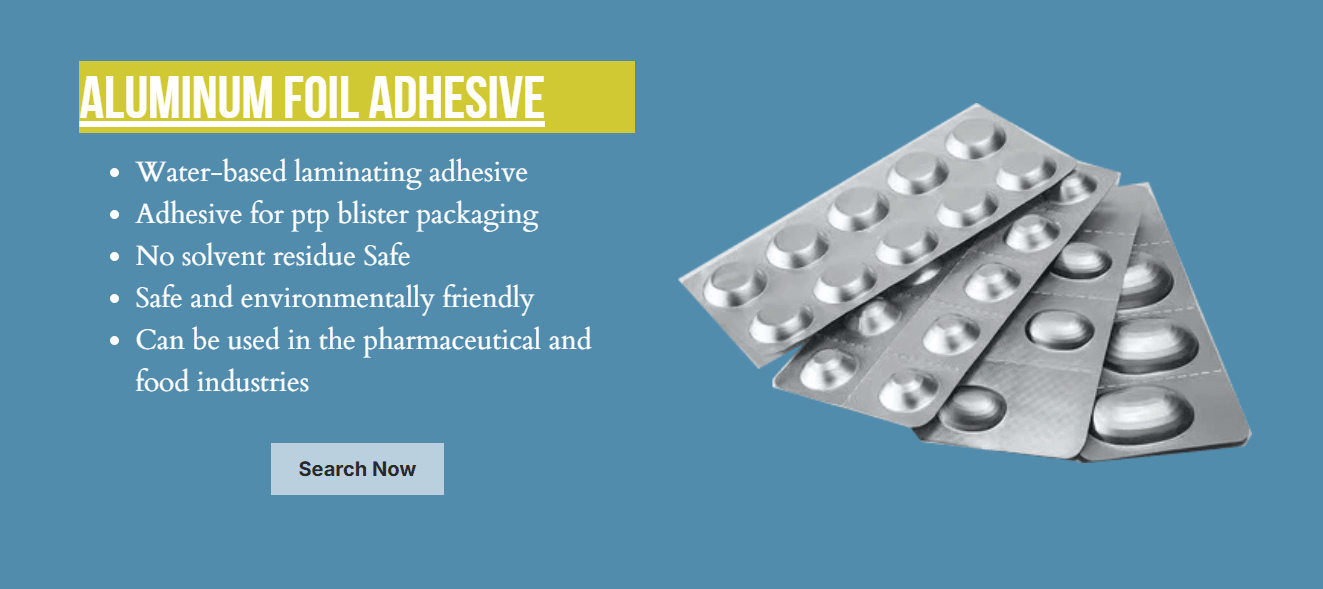
In wrapping up our exploration of heat seal adhesives, it's clear that these specialized bonding agents offer a plethora of benefits across various applications. The strength and reliability of high temperature adhesive solutions make them indispensable in both packaging and assembly processes. With their ability to withstand extreme conditions, high heat glue products stand out as the go-to choice for industries demanding durability and performance.
Recap on Heat Seal Adhesives Benefits
Heat seal adhesives provide remarkable bonding capabilities that are essential for ensuring product integrity during transit and storage. Their unique formulation allows them to create strong adhesive glue bonds even under challenging conditions, making them ideal for use in high-stress environments. Moreover, the versatility of high temperature adhesive options enables manufacturers to tailor solutions specifically for their needs, enhancing overall operational efficiency.
The Future of Adhesives in Sustainability
As we look toward the future, sustainability will play a pivotal role in the development of adhesives like high temperature glue products. Eco-friendly alternatives such as Chemix's water-based resin solution are becoming increasingly popular due to their reduced environmental impact without compromising performance. The demand for sustainable practices is pushing innovation within the adhesive industry, paving the way for more efficient and responsible options like hi temp adhesive formulations.
Final Thoughts on High Temperature Adhesive Options
In conclusion, selecting the right high temperature adhesive can significantly influence product quality and production costs. Whether you opt for a traditional strong adhesive glue or explore advanced eco-friendly alternatives, understanding your specific requirements will guide you toward optimal choices. Embracing innovative solutions such as heat seal adhesive technologies not only enhances product performance but also aligns with a growing commitment to sustainability in manufacturing practices.
